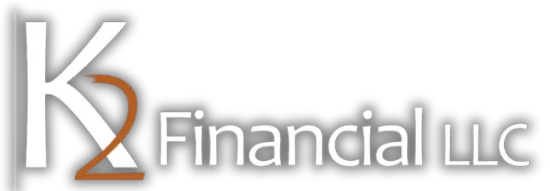inFOCUS
K2 Financial blog

Debt Consolidation
Debt Consolidation With a Home Equity Conversion Mortgage (HECM)
For senior clients aged 62 and older, the FHA’s Home Equity Conversion Mortgage (HECM) has evolved into a versatile financial tool. Initially characterized as a reverse mortgage product for cashing out home equity, it now plays a crucial role in retirement planning, offering benefits such as enhanced cash flow, liquidity, tax planning opportunities, and even increasing net worth. However, one of the most effective applications of a HECM today is for debt consolidation.
Understanding Debt Consolidation
Debt consolidation is a strategy where multiple debts—such as mortgages, auto loans, and credit card balances—are rolled into one. This often results in better terms, such as lower interest rates and lower monthly payments, providing significant benefits like easier debt management, reduced risk of default, and long-term savings.
By utilizing a HECM, homeowners can tap into their housing wealth to eliminate existing mortgage balances, property liens, installment loans, and high-interest revolving credit card debt. The major advantage? There are no required monthly principal or interest payments. The only obligations are to live in the home and cover property-related expenses like taxes, insurance and HOA dues. The loan balance, plus accrued interest, is typically settled when the home is sold or passed to heirs.
While HECM funds do not directly pay off consumer debt at closing, the proceeds are provided to the homeowner, who can then use them for debt repayment. It is noteworthy that there are some proprietary reverse mortgages that may offer direct consumer debt payoff options.
Why Now is the Right Time
Recent economic trends have reshaped the debt landscape. Today, consumer debt is climbing to extraordinary levels, with revolving debt surging by over 77% in the last decade, while personal savings have dropped by 44%. On the other hand, home values have appreciated significantly, with an average increase of 106% over the same period. This makes it a compelling time for homeowners to explore HECM debt consolidation.
Addressing Common Concerns
Foreclosure Risk: There’s a misconception that leveraging home equity to reduce consumer debt increases foreclosure risk. However, foreclosure typically occurs due to missed mortgage or property tax payments. With an HECM, there are no required mortgage payments, which alleviates much of that risk. By consolidating debt, homeowners are better positioned to meet their property tax and related obligations, reducing overall financial strain.
The Debt Debate: Some financial advisors, particularly those following the philosophies of popular financial media personalities, often argue that all debt is inherently bad. However, this perspective overlooks the high interest rates on revolving consumer debt. Paying 20–30% on credit card balances while trying to eliminate debt through small, incremental payments is inefficient. With the HECM, debt can be consolidated quickly, providing immediate relief and improved cash flow.
HECM vs. Cash-Out Refinance
Why not opt for a traditional cash-out refinance to consolidate debt? In today’s environment of rising interest rates, it may be risky to refinance a mortgage and increase the homeowner's monthly payment obligations. While the “blended” interest rate might decrease, cash-out refinancing often converts unsecured debt into secured debt, placing the home at risk if payments are missed.
With the HECM, homeowners benefit from no required monthly payments on their reverse mortgage. And for those concerned about interest accrual, optional payments can be made to reduce the loan balance, which in turn increases the available line of credit. This flexibility, combined with HECM’s unique features, makes it a powerful tool in a high-rate environment.
The Bigger Picture
The HECM loan product, including debt consolidation, can be integrated into a broader financial strategy. From optimizing tax planning to managing long-term care costs, executing ROTH conversions, or making Social Security filing decisions, reverse mortgages are versatile instruments. However, like any financial strategy, debt consolidation with a HECM requires careful planning and discipline to avoid accumulating new debt.
By leveraging a reverse mortgage for debt consolidation, advisors can help clients significantly reduce financial stress and create a more secure retirement plan.
SUBSCRIBE
You can receive these blog posts by email as part of our newsletter series. Just enter your email address and you'll receive them without leaving the comfort of your inbox. Your address will not be shared with anyone.

Sam Jack Brantley
NMLS 723522
(615) 542-0821
samjack@samjack.com

Ken Kennedy
NMLS # 1627908
(903) 235-3637
kenk@k2-financial.com

Kenny Hawthorne
NMLS @ 1647665
(903) 235-7114
khawthorne@k2financial.com

John Misky
NMLS 478717
(615) 310-2687
jmisky@k2-financial.com

K2-Financial, LLC is an Equal Opportunity Mortgage Broker/Lender. The services referred to herein are not available to persons located outside the state of Texas and/or the state of Tennessee.
Branch Location: 605 S Orchid Dr, White Oak, TX 75693; Corporate Address: 24302 Del Prado Suite B Dana Point, California 92629 NMLS # 1842513
This licensee is performing acts for which a mortgage company license is required. OC Home Loans, Inc., is licensed by the Texas Department of Savings and Mortgage Lending, NMLS: 1842513. Loan approval is not guaranteed and is subject to lender review of information. All loan approvals are conditional and all conditions must be met by borrower. Loan is only approved when lender has issued approval in writing and is subject to the Lender conditions. Specified rates may not be available for all borrowers. Rate subject to change with market conditions. K2-Financial, LLC is an Equal Opportunity Mortgage Broker/Lender. The services referred to herein are not available to persons located outside the state of Texas and/or the state of Tennessee. Branch Location: 605 S Orchid Dr, White Oak, TX 75693; Corporate Address: 24302 Del Prado Suite B Dana Point, California 92629 NMLS # 1842513





